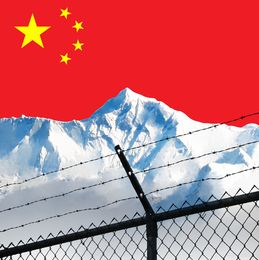Narendra Modi is faced in Nepal with a failure of policy as Kathmandu looks increasingly to China and turns more and more resentful of India. Indeed, the political mood in Nepal is such that it is the current state of India-Nepal relations that is the principal reason behind Khadga Prasad Sharma Oli’s return to office as prime minister in coalition with a party that had hitherto been regarded as our most reliable friend, the Nepali Congress led by the veteran Sher Bahadur Deuba.
Reports from Kathmandu indicate that this churning in Nepal is principally on account of the supine way in which Oli’s immediate predecessor, Pushpa Kamal Dahal ‘Prachanda’, had surrendered to the virtually imperial demands made by the Modi government on Prachanda’s official visit to Delhi in June 2023. On that visit, Prachanda eschewed the opportunity to pursue Nepal’s principal concerns with Modi saying that it would have “ruin(ed) the atmosphere”. His opponents, both within the alliance he had forged to become PM and among the commentariat and opposition in parliament, deplored such appeasement of a bullying ‘big brother’.
Among the fierce reactions, the sharpest retort came from a former minister who described Prachanda and his cohort as lampasarbadis—spineless cowards, crawling when they were only asked to bend! Others said India had reduced Nepal’s sovereignty to the “third stratum”, below even the “provincial establishments” in India. Indeed, Modi’s hauteur and ill-treatment of Nepalese leaders, going back to the Modi sarkar’s economic boycott of Nepal in 2015 because they had dared proclaim a constitution for Nepal without incorporating the amendments Delhi had suggested, has led even to our staunchest friend in that country, the Nepali Congress, joining in the chorus against Prachanda’s pusillanimous failure to advance Nepal’s interests against an India that seems determined to unilaterally and even whimsically trample on them. Finally, the Nepalese are not unaware of the BJP desire to see the Republic of Nepal revert to a monarchy that had proclaimed a Hindu Rashtra in Nepal and has had intimate ancestral links with Yogi Adityanath’s ashram in Gorakhpur. Muddying the waters further is the sangh parivar’s angry rejection of Oli’s assertion that the Ayodhya of Lord Ram lies in Nepal and not India!
Principal among Nepal’s current grievances is the Modi government’s refusal to cooperate with Nepal in operationalising their Chinese-built international airports at Bhairahawa and Pokhara on the sole ground that China had helped build them. There is also burgeoning anger at India refusing to buy power from Chinese-assisted hydroelectric plants, despite China winning the contracts in international bidding.
“Hypocrisy” is what Nepalese commentators describe these prohibitions as, given the massive and growing imports and investments that India makes from China to keep its own economy chugging. There is also the simmering issue of whether the Lipulk-Limpiyadhura-Kalapani triangle belongs to India or Nepal. Moreover, the Modi government refuses to release the report of the joint India-Nepal Eminent Persons Group that reviewed the gamut of India-Nepal relations at the behest of both governments, only because the constructive recommendations made by the group in the common interest of the two countries are not in accord with the Modi government’s colonial approach to Nepal. Nepal also resents India forcing into cold storage the multilateral SAARC initiative for bilateral Indo-Pak reasons. That is a formidable agenda which requires attention at the highest level, and not, as Prachanda had done, to be kept off the table for New Delhi to feel ‘comfortable’ as he put it with Kathmandu.
It was the image of the “Ugly American” that fundamentally caused the undoing of the US in Vietnam. We should never forget that Nepali sovereignty deserves respect as it occupies the central sector of the Himalayan chain that separates both countries from China.
Aiyar is a former Union minister and social commentator.


